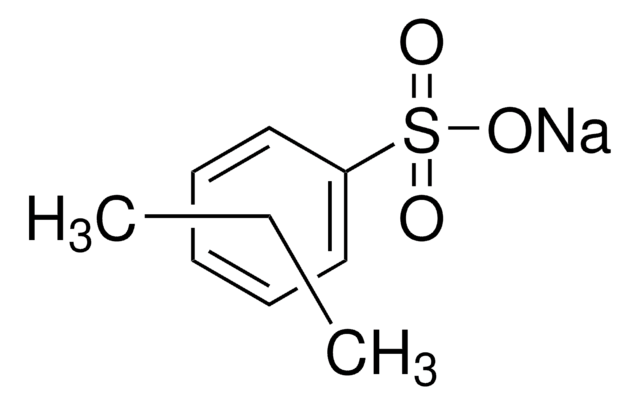267244
Platinum
foil, thickness 0.025 mm, 99.9% trace metals basis
Sinónimos:
Platinum element, Platinum gray
Iniciar sesiónpara Ver la Fijación de precios por contrato y de la organización
About This Item
Fórmula empírica (notación de Hill):
Pt
Número de CAS:
Peso molecular:
195.08
EC Number:
MDL number:
UNSPSC Code:
12141734
PubChem Substance ID:
NACRES:
NA.23
Productos recomendados
assay
99.9% trace metals basis
form
foil
resistivity
10.6 μΩ-cm, 20°C
thickness
0.025 mm
bp
3827 °C (lit.)
mp
1772 °C (lit.)
density
21.45 g/cm3 (lit.)
SMILES string
[Pt]
InChI
1S/Pt
InChI key
BASFCYQUMIYNBI-UHFFFAOYSA-N
Categorías relacionadas
General description
This platinum foil is a thin sheet of platinum with a thickness of 0.025 mm and high chemical purity. Platinum is a dense, silver-white metal that is highly resistant to corrosion and has a high melting point. Platinum is a precious metal that is valued for its rarity and chemical stability, and is often used in jewelry, coins, and other decorative objects. In material science, it is often used as electrodes in fuel cells, batteries, and other electrochemical devices, as a substrate for electroplating, and as an inert crucible or dish among other applications.
Application
Platinum foil can be used for a variety of applications such as:
- growth of high crystalline boron nitride (BN) material for UV optoelectronic devices.
- fabrication of electrochemically stable microelectrode arrays
- a counter electrode for the fabrication of supercapacitors
- an enzyme electrode probe for potential usage in biosensors
Quantity
350 mg = 25 × 25 mm; 1.4 g = 50 × 50 mm
Storage Class
13 - Non Combustible Solids
wgk_germany
nwg
flash_point_f
Not applicable
flash_point_c
Not applicable
Certificados de análisis (COA)
Busque Certificados de análisis (COA) introduciendo el número de lote del producto. Los números de lote se encuentran en la etiqueta del producto después de las palabras «Lot» o «Batch»
¿Ya tiene este producto?
Encuentre la documentación para los productos que ha comprado recientemente en la Biblioteca de documentos.
Los clientes también vieron
Electrodeposition of nickel hydroxide films on nickel foil and its electrochemical performances for supercapacitor
Fu GR, et al.
International Journal of Electrochemical Science, 4(8), 1052-1052 (2009)
Pt based enzyme electrode probes assembled with Prussian Blue and conducting polymer nanostructures
Curulli A, et al.
Biosensors And Bioelectronics, 20(6), 1223-1232 (2004)
Yao-Hsuan Tseng et al.
Biochimica et biophysica acta, 1830(6), 3787-3795 (2013-04-02)
Traditional antibacterial photocatalysts are primarily induced by ultraviolet light to elicit antibacterial reactive oxygen species. New generation visible-light responsive photocatalysts were discovered, offering greater opportunity to use photocatalysts as disinfectants in our living environment. Recently, we found that visible-light responsive
Mohammad Shamsuddin Ahmed et al.
Journal of nanoscience and nanotechnology, 13(1), 306-314 (2013-05-08)
Multi-walled carbon nanotube grafted Pt nanoparticles via nitrogen atom (MWCNT-N-Pt) has chemically synthesized and characterized as an efficient oxygen reduction reaction (ORR) catalysts. Structural and morphological properties of the electrocatalyst have characterized by transmission electron microscopy (TEM), energy-dispersive X-ray spectroscopy
Y Yamagishi et al.
Die Pharmazie, 68(3), 178-182 (2013-04-06)
Nano-sized materials are widely used in consumer products, medical devices and engineered pharmaceuticals. Advances in nanotechnology have resulted in materials smaller than the nanoscale, but the biologic safety of the sub-nanosized materials has not been fully assessed. In this study
Nuestro equipo de científicos tiene experiencia en todas las áreas de investigación: Ciencias de la vida, Ciencia de los materiales, Síntesis química, Cromatografía, Analítica y muchas otras.
Póngase en contacto con el Servicio técnico




